Most people don’t think about eye cancer until it shows up in their life like an unexpected guest at a quiet dinner. It's pretty rare—only about 800 people are diagnosed each year in the UK. Yet when you or someone you love gets the news, the statistics don’t matter. The feelings hit first: shock, fear, confusion. Your world gets rearranged in a blink.
Understanding Eye Cancer: More Than Meets the Eye
When someone mentions cancer, you picture lungs, breasts, or maybe a skin mole. Eyes don’t usually come to mind. But the fact is, eye cancer—especially uveal melanoma—crops up in people of any age, though it nudges toward those over 50. The eye isn’t just a window to the soul; it has its own complicated risks. Uveal melanoma begins in the layer between the white of the eye and the retina. That’s a spot you can't see in the mirror. Retinoblastoma targets children, usually before the age of 5, while lymphoma of the eye gets mentioned among adults struggling with weakened immune systems.
Here’s something that might surprise you: Many people find out during a routine eye test. The signs are easy to dismiss—maybe some blurriness, a little flashing of lights, or a new floaty shadow that just won’t go away. Vision loss might creep up slowly, almost like a thief in the night. Other times, the tumor is caught before symptoms even start, buried in the back of the eye. That happened to Linda, our neighbor in Bristol. Her optician spotted something odd during a normal checkup, which led to more tests and, eventually, a diagnosis. She never felt a thing. That’s both comforting and scary—how silent something so serious can be.
Here’s a quick look at the most common types detailed in a table:
| Type | Age Group | Common Symptoms |
|---|---|---|
| Uveal melanoma | Adults, 50+ | Blurred vision, flashers, floaters |
| Retinoblastoma | Infants/children under 5 | White glow in pupil, eye misalignment |
| Lymphoma of the Eye | Adults, especially immunocompromised | Vision changes, redness, floaters |
While risk factors are still being studied, fair-skinned people with blue or green eyes have a slightly higher chance of developing uveal melanoma. Prolonged UV exposure and certain genetic conditions also pop up in research, but nothing guarantees who will face it next. Treatments depend on the cancer’s size and location—you might hear words like radiotherapy, laser surgery, or even removal of the eye. That’s a lot to process. It’s not just about survival; it’s about keeping the parts of yourself that make you feel whole.
The Emotional Rollercoaster: Coping Beyond the Physical
Eye cancer messes with your emotions almost as much as your body. It can turn a steady person upside down. Facing any kind of cancer diagnosis can bring up a cocktail of emotions—fear, anger, numbness, shame, anxiety. Add in the idea of losing sight or changing how you look and it gets more complicated. It hit hard when my wife Kimara joked that she’d have to play our favorite board games for both of us if I lost my vision in one eye. She was only half kidding. The thought stung more than the initial diagnosis did.
A cancer diagnosis opens up all kinds of questions you've never thought of. Will I still be able to work? Who will look after the kids? Can I still drive? Am I less of myself if my appearance changes? Even small things can trigger big emotions. One day you’re washing your face and catch yourself avoiding the mirror. Suddenly, the way you see yourself has shifted.
Depression and anxiety are pretty common. Mental health shouldn’t be sidelined during treatment. Macmillan Cancer Support shared that up to a third of cancer patients deal with significant emotional distress. Partners and family feel it, too. My own experience was a mix of relief and guilt every time I found myself grateful when test results went our way but frustrated when anything set us back. It’s messy. You need tools for coping, not just medicine. There’s comfort in talking openly—either one-on-one with a counselor, in support groups, or just with a mate down at the pub. Don’t gloss over the emotional side and pretend it’s not happening. Every feeling is valid, even if it doesn’t feel sensible at the time.
Keeping a daily journal can help untangle thoughts. Some people find art therapy or music healing when words just won’t come. Others need practical tasks—organizing, scheduling, or taking charge of something small, like making the tea. There’s no right way to cope. Whatever keeps you connected to yourself and those around you—that’s what matters under the weight of eye cancer.

Spiritual Support: The Missing Link in Many Recovery Stories
Not everyone talks about spirituality when cancer is the topic, but it quietly sits in the background for many. People facing the threat of losing their sight or struggling with the fear of cancer spreading often start to ask bigger questions than before. Why me? What now? Can anything give me peace when science runs out of answers? That’s where spiritual support enters the picture—sometimes subtle, sometimes center stage.
It doesn’t always mean religion. Spiritual support can be about faith, but it's also about meaning, hope, and connection. For some, it means prayer or reading sacred texts. For others, it could be meditation, mindfulness, connecting with nature, or just quiet time alone. A study in 2023 from the University of Manchester looked at cancer patients who had access to spiritual care and tracked their mental health. Those with regular spiritual support—whatever that looked like for them—showed less anxiety, lower depression, and even fewer pain complaints than patients with no spiritual guidance at all. It didn’t matter if it was a structured religious practice or a personal ritual. The key factor was having a space to search for meaning and hold onto hope.
The tricky part is that spiritual needs often go unspoken. Hospitals and clinics sometimes skip right past the topic. It helps to be open. Ask for chaplains, hospital spiritual advisors, or even online resources tailored for people wrestling with big questions. Local support groups sometimes run workshops on spirituality in recovery. When I sat in with Kimara on a session at St. Peter’s Hospice in Bristol, one of the facilitators said something that stuck with me: "Healing isn’t always about getting rid of the cancer. Sometimes it's about finding peace with what’s happening." That was powerful.
Looking for spiritual support might feel awkward at first, especially if you don’t usually talk about feelings or faith. But it’s worth it. You don’t have to go through it alone. Reflecting, praying, meditating, or journaling can help settle a mind rattled by fear. Even just talking with someone who knows how to listen can turn a stressful day into something lighter. If faith is part of your life, lean into your community. If it isn’t, you can still find comfort in what makes you feel connected—whether that's music, art, or the steady routine of a neighbourhood walk.
Building a Support Network: Who's Got Your Back?
If you ever doubted that humans are social creatures, cancer will teach you quick. Having people at your back is crucial, especially with something as complex and rare as eye cancer. Don’t try to tough it out solo. A good network can be anything from family and close friends to online groups where nobody knows your face but everyone knows your pain.
The first place most people turn to is family. In my case, Kimara took on roles I never imagined: nurse, advocate, researcher, comedian. She made all the difference by going to appointments, keeping track of the details, and never letting me wallow for too long. If friends or relatives can’t be physically close, regular video calls or texts can still anchor you. Just being seen and heard counts for a lot.
Don’t overlook the wider network. There are national and local charities that focus specifically on eye cancer, like OcuMel UK. They set up buddy programs where you can chat with someone who’s been there—someone who knows what the big medical terms feel like in day-to-day reality. Doctors and nurses are a big part of your team, too. Lay out your questions. No worry is too minor when it’s your health on the line. Studies have shown that patients who ask more questions and bring in their network get better, more personalized care. You’re not just a file in a cabinet. Remind the medical folks you want to be seen as a person, not just a diagnosis.
Don’t forget to accept help, even if it feels strange at first. If someone offers to cook, clean, or walk the dog, let them. It’s not weakness; it’s just smart resource management. Your energy is precious—spend it on healing, not chores. And if you’re up for it, join a support group. Hearing how others are handling the journey offers new ideas and helps break up the loneliness. Even when you think you’re the only one, someone out there knows exactly what you’re dealing with.
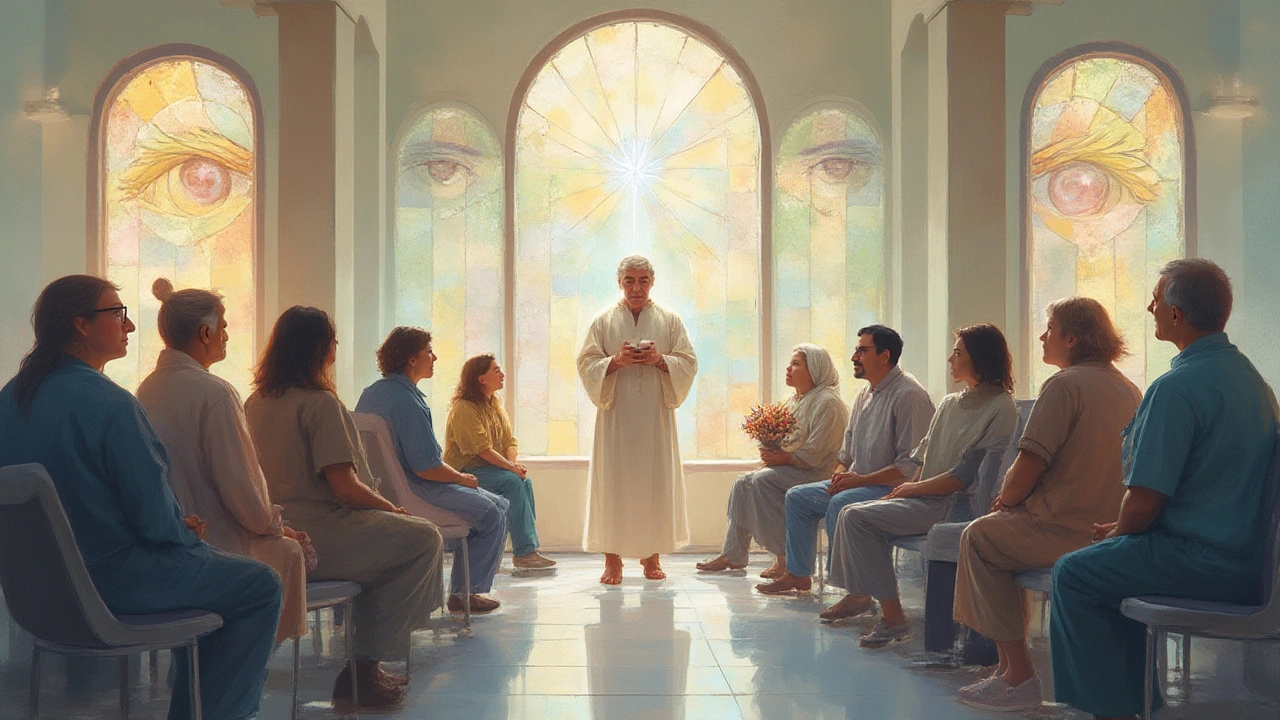
Tangible Tips for Navigating Eye Cancer and Staying Whole
Facts and support are important, but so are the little hacks that make things a bit less rocky. Here are some practical ways to steady your path when you’re dealing with eye cancer:
- Stay on top of appointments: Use phone reminders or a written calendar. Missed scans delay things—don’t let a busy week trip you up.
- Prep for specialist visits: Write down questions ahead of time. Bring someone along for an extra set of ears, even if it’s over speakerphone.
- Protect your eyes: If you’re undergoing treatment, shield your eyes from bright sunlight with UV-blocking sunglasses. The Royal National Institute of Blind People (RNIB) has some great buying guides.
- Keep up healthy habits: Sleep matters as much as medication. A regular bedtime, a balanced diet, and gentle activity like walking or stretching can help your body mend.
- Be honest about your needs: Don’t hide struggles with mood, energy, or pain. Your care team can’t fix what they don’t know about.
- Mind your mental health: Chat with a therapist, counselor, or a good friend. If you’re feeling stuck, speak up early.
- Explore ways to ground yourself: Guided meditation apps, prayer, or five minutes of mindful breathing each day makes a difference for your nerves.
- Document the journey: A journal or video diary can help you keep track of patterns—what helps, what doesn’t, and how you’re really feeling.
- Celebrate small wins: Finished a treatment round? Managed a tough conversation? That deserves real recognition. Your effort is worth more than the end result.
- Find your tribe: Online forums or local support groups can make a huge difference. Talking to folks who “get it” can ease the sense of isolation.
Sometimes, you just need time to adjust. Be patient with yourself. Today might be rough, but tomorrow’s a clean slate. Never underestimate how healing a laugh or a shared cup of tea can be when words fall short. Every act of kindness, to yourself or from others, is another brick in the road to feeling whole again.

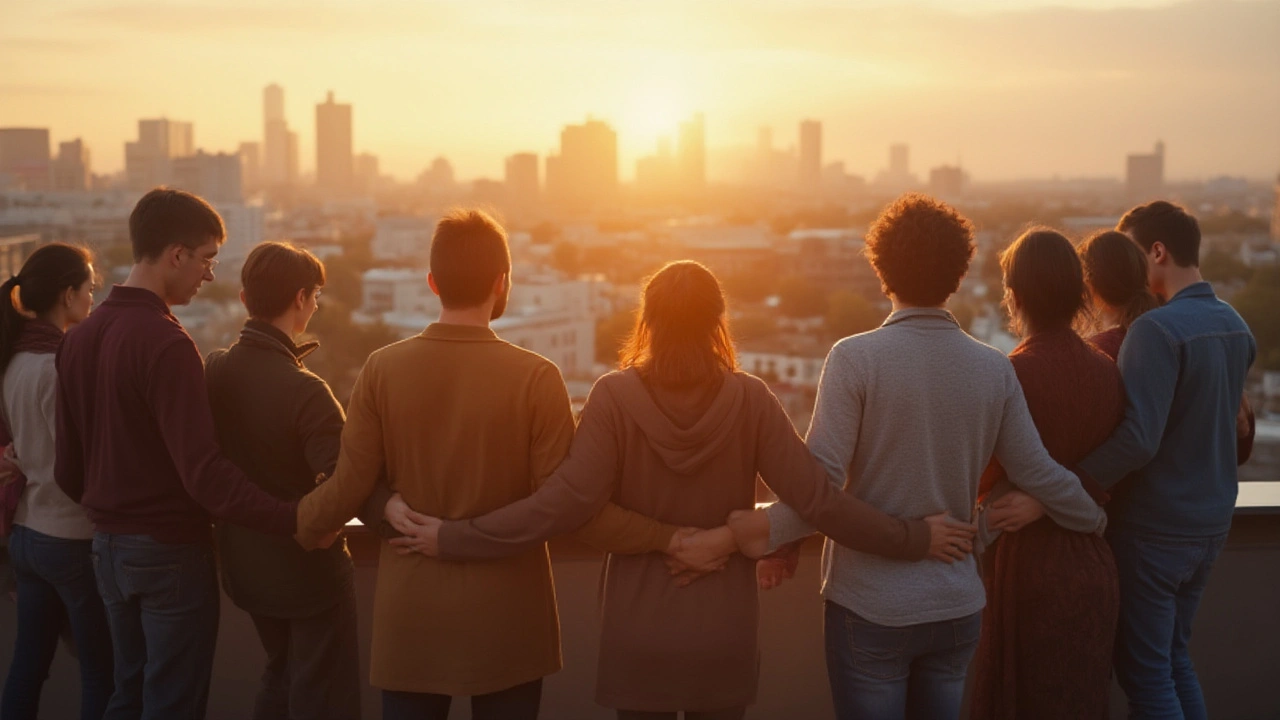
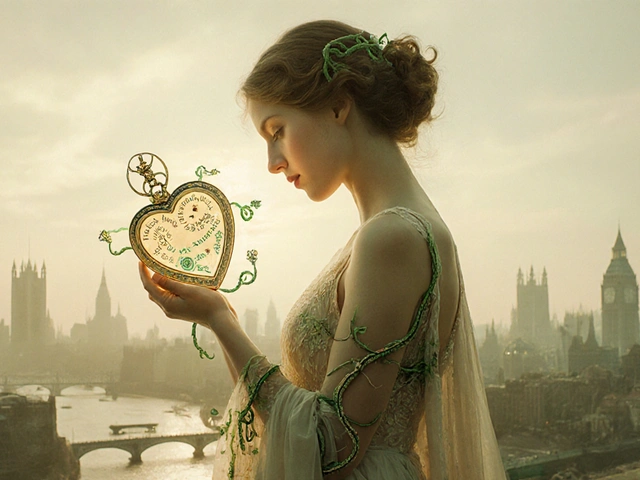
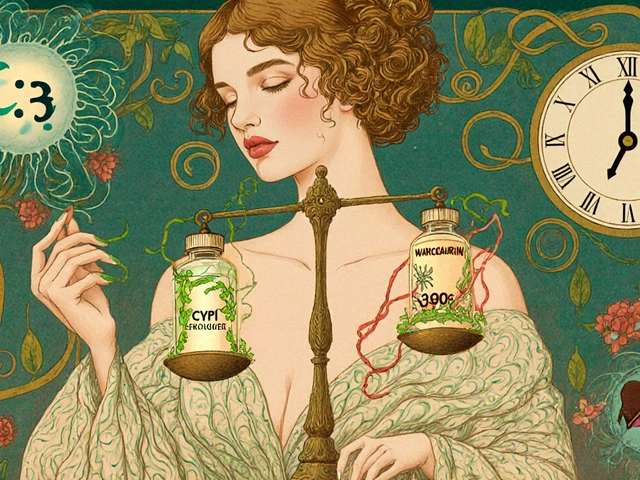
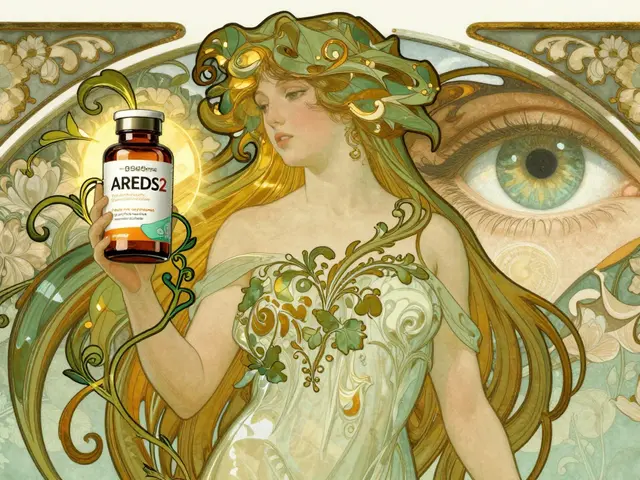
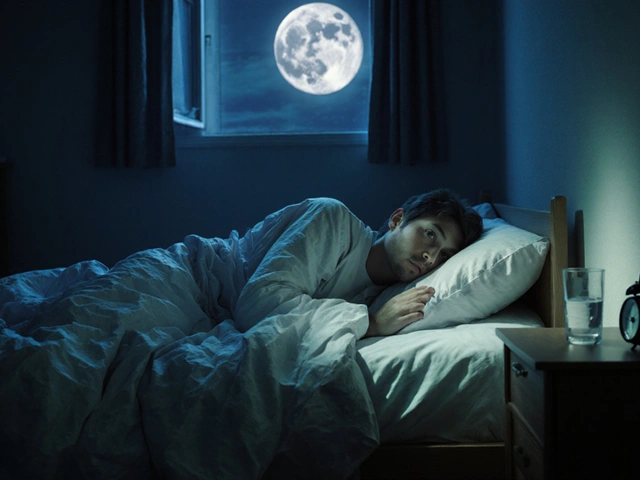

joni darmawan
July 10, 2025 AT 14:20This post sheds light on a very under-discussed yet critical topic. Eye cancer can feel isolating, and integrating spiritual support seems not only comforting but transformative in the healing journey. Spirituality sometimes provides patients a sense of peace and acceptance which conventional medicine may not fully address.
It's fascinating to consider how human insight complements clinical approaches, broadening the spectrum of care. Genuine empathy, shared stories, and the comfort of feeling understood could arguably play a role in actual recovery outcomes. Have you come across any studies linking spiritual support with improved physical healing in eye cancer patients?
This holistic approach aligns well with broader theories about mind-body connections. The emotional and psychological bolstering that spirituality might encourage is a topic that deserves more academic and practical attention. Overall, a thought-provoking read!
Andy V
July 11, 2025 AT 04:13Glad someone's finally talking about eye cancer, but can we please get the facts straight? 'Spiritual support transforms healing' sounds too vague and borderline misleading if we're not clear on what 'transform' means. Does it improve survival rates? Help with pain management? Because terms like that can make people put less focus on medical treatment, which is not only dangerous but irresponsible.
That said, I do get that feeling spiritually centered can uplift morale. But let's not romanticize it like a magic cure or something. Statistics matter, otherwise, we're putting hope over evidence, and that's a slippery slope. If anyone's going to talk about this, let's see some actual numbers and clear outcomes, not just fluffy human insight.
Also, a small note on the grammar here: 'explore eye cancer and how spiritual support changes the recovery journey' needs a comma after 'cancer' to improve clarity.
jana caylor
July 12, 2025 AT 08:00I appreciate the blend of data and human experience this post brings out. Post-diagnosis emotional support can be just as crucial as the clinical one, especially for cancers that affect a sense so vital as sight. Knowing you’re not alone and that your spiritual beliefs can anchor your healing process is powerful.
I've seen patients speak about how meditation, prayer, or simply community support through spiritual gatherings gave them new strength to endure tough treatments. It’s not just about faith; it’s about finding a space where anxiety and fear take a backseat. This can literally shift how the body responds to stress and healing.
What do others think about the intersection between science and spirituality in cancer care? I think both can exist and support each other well without conflict.
Nilesh Barandwal
July 14, 2025 AT 15:33Oh, how profoundly inspiring!! Eye cancer is a harsh battle—shattering and draining, indeed!!! But with spirituality, the soul finds breath in the darkest tunnels of despair!!! The psychological uplift that spiritual care provides is no illusion—it is a beacon lighting the path!!
Consider, dear friends, the cascades of stress hormones calmed, the immune defenses awakened, and the patient’s spirit emboldened!!! Such alchemy within the healing process cannot be overstated!!! We must hold onto this truth fervently!!!
Have any here experienced this profound merging of mind, body, and spirit in their or their loved one's cancer battle? Please share your stories—let us build a tapestry of hope!!!
Sen Đá
July 16, 2025 AT 23:06The post suggests that 'spiritual support transforms healing,' a claim which must be approached with care and rigorous evaluation. While it is commendable to explore holistic aspects, concrete evidence demonstrating direct causation or significant impact on biological recovery from eye cancer remains limited and largely anecdotal.
Medical treatment protocols comprise the primary and essential framework for effective management of eye cancer. Spiritual and psychological support should be adjunctive and not substituted for evidence-based care. The ethical imperative here is to ensure that patients receive clear, unambiguous guidance that prioritizes proven therapeutic interventions.
That said, if spiritual support aids patient morale and mental resilience in a measurable way, that is worthy of formal recognition and integration within supportive care services.
LEE DM
July 23, 2025 AT 21:46I really like how this post embraces multiple perspectives on healing—medical facts, statistics, and something more human and intangible. From my experience meeting many folks navigating chronic illness, spirituality often serves as a bridge to hold them steady when the medical journey feels overwhelming and isolating.
It's important, however, to recognize the diversity of spiritual beliefs and practices, and how each person's unique path might lend different types of comfort or strength. The inclusive approach enhances empathy and reduces stigma around seeking spiritual support alongside medical treatment.
Has anyone explored specific spiritual traditions or rituals and their impacts on patient outcomes? It would be cool to see some cross-cultural insights here!
mathokozo mbuzi
July 26, 2025 AT 05:20This topic invites reflection on the delicate balance between conventional medicine and spiritual well-being. Particularly in contexts such as eye cancer, where physical outcomes often dominate discussion, the subjective human experience can be overlooked.
Spirituality, whether defined by organized religion, personal beliefs, or existential meaning-making, can foster coping mechanisms that enhance psychological resilience. This may not directly remove tumors, but it can influence how patients engage with treatment and recovery.
I wonder how healthcare providers across different cultures incorporate spiritual care within oncology. Is this integrated consistently or more ad hoc?
Michael Ieradi
July 28, 2025 AT 12:53This is a truly important conversation, often neglected due to focus on clinical data alone. Spiritual support is a complex and deeply personal element that can reshape a patient's healing experience significantly. I've witnessed how patients draw on faith and spirituality to maintain hope when prognosis seems grim.
However, it’s essential to support this with education so that patients don’t forego medical treatments. The synergy between spiritual and medical support can be powerful if managed respectfully and knowledgeably.
Did the post share any specific advice or resources for patients and loved ones to help build spiritual support networks? That would be a useful addition.
Aayush Shastri
August 7, 2025 AT 22:53Bringing in both factual content and spiritual insight is a commendable effort. In my cultural context, spiritual practices have historically been intertwined with healing rituals, reflecting a holistic view of health that is very different from Western biomedical models.
Such integration can empower patients by honoring their beliefs and reinforcing community ties. This can indeed change the emotional and psychological landscape of healing profoundly.
Would love to see more dialogue about how modern medicine can respectfully incorporate spirituality without compromising on scientific rigor. What's everyone else's take on these collaborations between tradition and science?